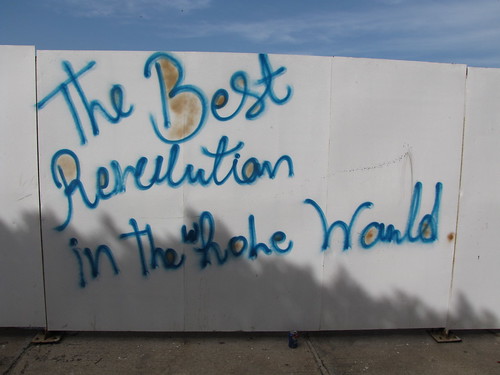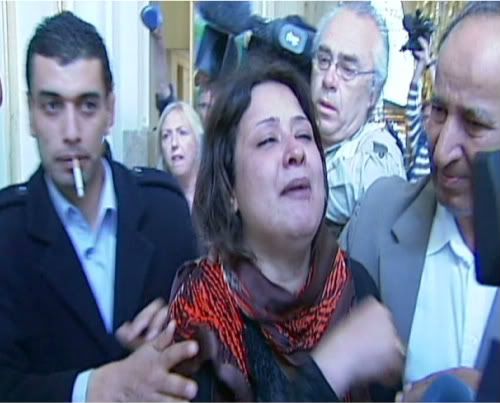By: inoljt, http://mypolitikal.com/
It’s said that power corrupts, and that absolute power corrupts absolutely.
Late Libyan dictator Muammar Gaddafi presents an excellent example of this tendency.
More below.
By: inoljt, http://mypolitikal.com/
It’s said that power corrupts, and that absolute power corrupts absolutely.
Late Libyan dictator Muammar Gaddafi presents an excellent example of this tendency.
More below.
By: inoljt, http://mypolitikal.com/
In February of 2011, Libya was convulsing with revolution against autocrat Muammar Gaddafi. Many Westerners were certain that Gaddafi would fall within days.
He did not. Rather, with the help of African mercenaries and loyalists, Gaddafi retook control of the streets of Tripoli. Rebel offensives in the east petered out, and Gaddafi’s armed forces began advancing towards the rebel capital Benghazi. Then the West intervened, and the rest is history.
It did have not to be this way, in fact. One main – and frequently underestimated – thing that caused Western intervention was Gaddafi’s rhetoric.
More below.
T he terrorist group Ansar al-Sharia was immediately associated with the Benghazi tragedy and reliable reports of their involvement were confirmed within days; this is often cited in accusations that the administration was remiss in their early appraisals presented to the media. How is this not compelling evidence of a terrorist plot? And how could this same militia gravitate back to Benghazi and assume their previous security role after such a blatant act?
he terrorist group Ansar al-Sharia was immediately associated with the Benghazi tragedy and reliable reports of their involvement were confirmed within days; this is often cited in accusations that the administration was remiss in their early appraisals presented to the media. How is this not compelling evidence of a terrorist plot? And how could this same militia gravitate back to Benghazi and assume their previous security role after such a blatant act?
The answer may provide some insight into the conditions in Benghazi at the time of the attack and help further our understanding of what actually happened that resulted in the death of our US ambassador and the apparent abandonment of CIA operations in Benghazi. There seems no question that Ansar al-Sharia militiamen, and their motor pool, were involved:
The trucks bore the logo of Ansar al-Shariah, a powerful local group of Islamist militants who worked with the municipal government to manage security in Benghazi…Paul Schemm and Maggie Michael – Libyan witnesses recount organized Benghazi attack AP 27 Oct 13
So we have ample evidence of their involvement, and reports they took credit for the attack on 12 September 2012, yet their leadership lived freely in Benghazi and even gave interviews with Western media in the aftermath. What gives?
F or a controversy which has played in so many committee rooms the factual narrative of events in Benghazi seems pretty hard to follow and has been largely subsumed in partisan assumptions. The State Department Accountability Review Board report gives an impressively coherent blow-by-blow of the tragic events at the Special Mission compound; though it fails to mention, by name, the CIA operation it is publicly alleged that the ‘mission’ was largely established to conceal and protect:
or a controversy which has played in so many committee rooms the factual narrative of events in Benghazi seems pretty hard to follow and has been largely subsumed in partisan assumptions. The State Department Accountability Review Board report gives an impressively coherent blow-by-blow of the tragic events at the Special Mission compound; though it fails to mention, by name, the CIA operation it is publicly alleged that the ‘mission’ was largely established to conceal and protect:
The U.S. effort in Benghazi was at its heart a CIA operation, according to officials briefed on the intelligence. Of the more than 30 American officials evacuated from Benghazi following the deadly assault, only seven worked for the State Department. […]The CIA worked from a compound publicly referred to as the “annex,” which was given a State Department office name to disguise its purpose. The agency focused on countering proliferation and terrorist threats, said an American security contractor who has worked closely with CIA, the Pentagon and State. A main concern was the spread of weapons and militant influences throughout the region, including in Mali, Somalia and Syria, this person said.
Adam Entous, Siobhan Gorman and Margaret Coker – CIA Takes Heat for Role in Libya WSJ 1 Nov 12
Last night I spent some time skyping with the Egyptian Moose delegation. The current situation post-Mubarak remains in flux, concerns about abuse of power by the Supreme Council of Armed Forces (SCAF) are rising while the country seeks a democratic solution to governance.

Libya similarly is beginning a path that – at least in theory – would see democracy take hold in the country.
While there is understandable concern among all who care about the region – most importantly those who live in it – I remain optimistic that the series of fits-and-starts that should be expected will lead eventually to a positive outcome.
What do you think, Mooses?
The NTC is set to declare the war for the freedom of Libya officially over.
The country has its future ahead of it, what will that bring?
Considering this an optimistically Open Thread.

Thanks to Ivorybill in Green Square for the image.
Yet to be double sourced, but if true, this is good news for the Arab Spring, Human Rights and International Law – according to Reuters
Deposed Libyan leader Muammar Gaddafi has been captured and wounded in both legs, National Transitional Council official Abdel Majid said on Thursday.
“He’s captured. He’s wounded in both legs … He’s been taken away by ambulance,” the senior NTC military official told Reuters by telephone.
I hope he recovers and is put on trial. As anyone who has followed my diaries on this knows, I think UN intervention in Libya was necessary under the Responsiblity to Protect doctrine and to support the Arab Spring. I think Power, Rice and Clinton played a blinder by persuading Obama to join France, the UK and the Arab League in degrading Gaddafi’s army.
For more on the politics behind the scenes of that decision, do read the Rolling Stone piece Inside Obama’s War Room
Al Jazeera is running this. Rumours of death in a hospital in Misrata might not be incompatible with such a severe injury:
Libyan TV is reporting that Muammar Gaddafi has been captured by NTC fighters in Sirte.
Jamal abu-Shaalah, a field commander of NTC, told told Al Jazeera that the toppled leader had been seized, but it was not clear whether he was dead or alive.
Gaddafi is captured and is wounded in both legs, Abdel Majid, another NTC official, told the Reuters news agency.
“He’s captured. He’s wounded in both legs … He’s been taken away by ambulance,” the senior NTC military official said.
An NTC official also said that Abu Bakr Younus Jabr, the head of Gaddafi’s armed forces, was killed during the capture of Gaddafi.
Libya is taking the first faltering steps towards living what most of us will consider a normal life. Beyond getting the basic essentials of life working again they have to figure out how to live in a daily world most of them have never experienced.
As is often noted, we all have a tendency to fight the previous war. Just as the ‘quagmire’ of Vietnam led to reluctance to intervene in Bosnia (at the cost of hundreds of thousands of lives), so too the successes of Kosovo led to the peremptory and ill planned interventionism of Iraq.
But Libya is not Iraq. As jubilant crowds fill Green Square, the fall of Tripoli to the rebels is a victory on many counts

A lot of arguments have been put forward against the current military intervention in Libya. While I understand the arguments of those who are sincere with their criticisms of the choices of the US President I believe that win or lose this action is the correct one to take at this time.
Our involvement in Libya is about Libya, but it also about the whole of the Arab Spring. What is at stake is the possible – just possible – attainment of every major liberal goal for millions upon millions of people. The ultimate success of the Arab Spring would do more for human rights in the world than all efforts towards that goal combined could possibly hope for.

A successful Arab Spring could lead to an African Fall. The population of effectively sadistic oppressive regimes in the world could fall dramatically in a few short years. Coming decades could see vibrant cities and societies where the very idea today is seen as so absurd as to not even enter serious conversation. Continental swathes of land soaked with blood, suffering and injustice could be saved from perpetual grinding hopelessness.
If my country did not at least try do what we can to foster this fragile moment of hope I think I would consider joining the cynics who believe we have lost our value in the world.